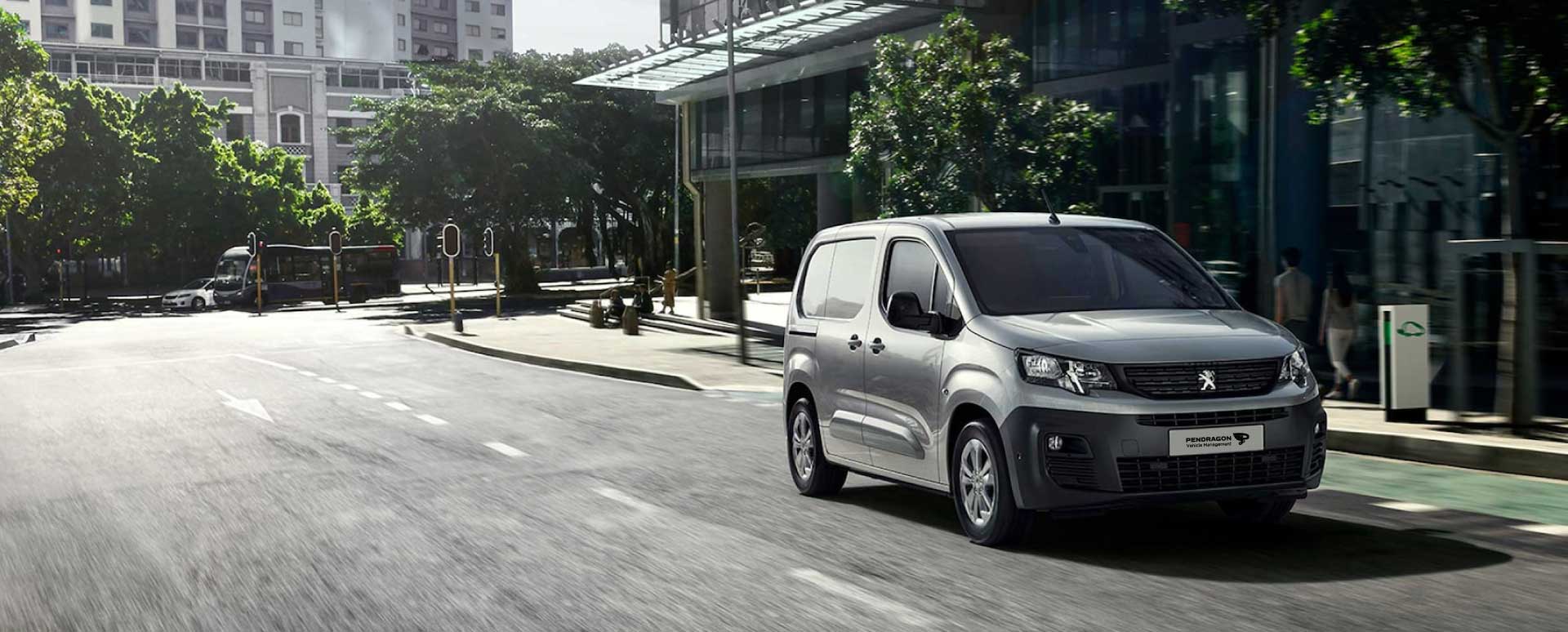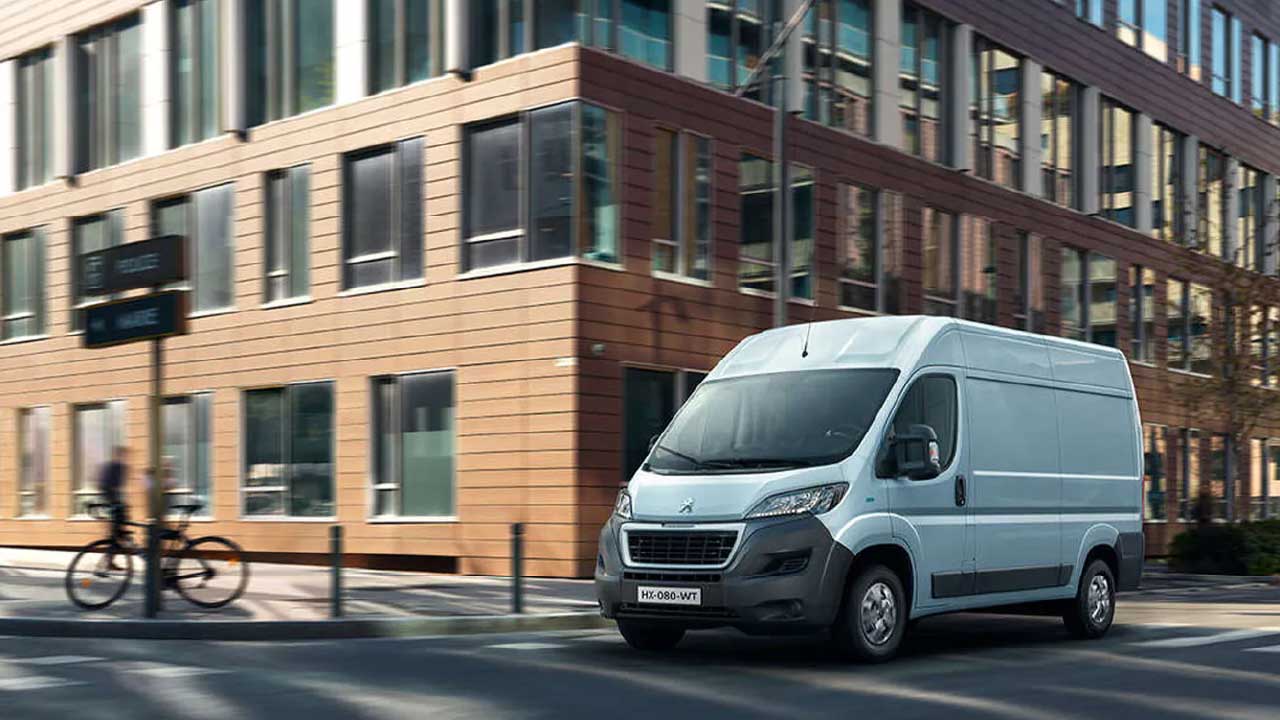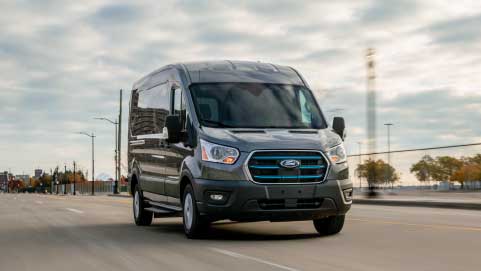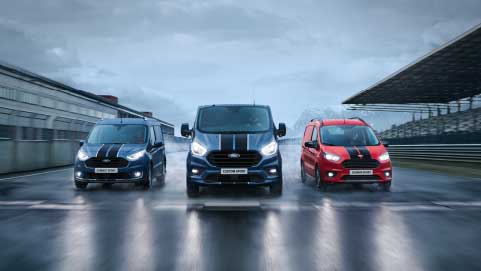How to choose the right electric van for you
Electric van sales currently represent a tiny fraction of new LCV sales right now. With the UK's 'Road to Zero' inching closer, where all new vehicles sold in the UK will be required to produce zero emissions by 2035, EVs are going to be more important in the UK LCV market over the coming years.
Finding the right electric commercial vehicles for your fleet is set to become an even bigger consideration for fleet operators, especially as over two thirds of current EV registrations are for businesses or fleets. Concern about environmental pollution is growing, and the UK government is set to put both businesses and private individuals under increasing pressure to adopt e-mobility solutions. An electric van could be the perfect opportunity to cut running costs, and these savings can make switching to an EV fleet an attractive proposition.
- What are the key considerations for electric LCV fleets?
- The benefits for your fleet
- What type of electric LCV is right for your business?
What are the key considerations for electric LCV fleets?
Purchase price
The technology used within EVs is still in its infancy, and often made up of expensive components. So, while they are expected to come down in cost as advancements are made, they will remain a costly option for a while in comparison to their diesel counterparts. It should be noted that they are usually cheaper to run, though.
Vehicle availability
One of the initial problems with electric vans was that there was barely any choice. This is no longer the case, with manufacturers producing more EV and hybrid vans, and you can expect that choice to widen and get better as we move forward.
Performance
An unavoidable reality of all electric vehicles is that their batteries deteriorate over time, and they gradually begin to hold less charge. You will find though that most battery packs are covered by extended warranties, ensuring they can last for the working life of the van.
Range variance
The efficiency of an electric van as quoted by the manufacturer may not quite translate into the real world once external factors are taken into consideration. Range can be impacted by other factors, including payload weight and driving style, but also the type of journey and the weather conditions, as colder temperatures can negatively affect EVs.
Access to charge points
Some key considerations you will need to make include providing access to charge points for your EV fleet, space to park the EVs at these points, as well as making them easy and convenient to access during the working day.
Time to charge
This can vary, depending on the power of the charging system, but even in the best-case scenario it will take longer to recharge an e-van than to refuel a regular van. The quickest options would be DC rapid chargers that can give an 80 percent charge in around 40 minutes, but as this is still longer than a vehicle with an internal combustion engine, it is another thing you should consider.
Workplace charging schemes
There are grants available towards the cost of workplace chargers. The government based Workplace Charging Scheme (WCS) provides support towards the up-front costs of the purchase and installation of electric vehicle charge points. You can find out more about eligibility on the official UK government workplace-charging-scheme webpage.
The government plug-in van grant
The government plug-in grant discount for vans is worth 20 percent of the asking price, up to a total saving of £8,000. This discount applies to light commercial vehicles with a plug, including both hybrid and full-electric vans. You can find out more about eligibility on the official UK government plug-in van grant webpage.
The benefits for your fleet
- Meet emissions targets: Electric vans produce no CO2 or NOx emissions. Widespread adoption has the potential to significantly improve air quality.
- Corporate responsibility: Help maintain a socially conscious image for your business, meet your corporate responsibility goals and attract new customers.
- Convenience: Electric vans have some convenience features not often seen elsewhere, with some able to set the air-conditioning to a preferred temperature while charging as an example.
- Running cost savings: Typically electric vans are considerably cheaper to run than their diesel alternatives with the cost per mile of ‘fuel’ (electricity) lower coupled with significantly reduced maintenance costs.
- Congestion charge savings: Being able to navigate Clean Air Zones (CAZ) and Ultra Low Emissions Zones (ULEZ) without charge can bring significant savings for businesses that operate within city centres.
- Other incentives: Free parking is available in many areas, as well as exemption from the London Congestion Charge, and even free charging in some places.
- Quiet driving experience: Electric vans are much quieter than diesel vans, making driving more pleasant for the driver, but it also opens up opportunities for unsocial-hours services, where a conventional van might otherwise bring noise complaints.
- Easy-going performance: Electric motors deliver instant torque and drive smoothly, making nipping around town quick and easy.
What type of electric LCV is right for your business?
It is important to identify exactly what you need from your vehicles and how you intend them to be used before looking at the different types available. If your fleet operates around towns and cities with really great access to charge stations, then you will almost be spoiled for choice regarding the full electric options.
However, if you are looking for vans that can cover longer distances or need to be able to transport a heavy payload, a hybrid van could be a better option in the interim, until full electric vans improve even further.
To really determine what the right choices for your business are, it is best to seek advice from experts and to prepare for more detailed discussions and consultation around your fleet. These are some significant considerations you may want to think about.
- What type of journeys do your vans need to be completing? Are they short hops around towns and cities, or longer journeys all over the UK?
- What sort of cargo is your fleet going to be transporting? Will it be heavy loads or lighter ones?
- What sort of vans do you require? Are you after a panel van, platform cab or something smaller? Is there an EV or hybrid version of what you are looking for?
- Are there going to be charging facilities at your fleet’s destinations or along their routes?
- Is there enough time in schedules to factor in the time it takes to recharge?
- Does your business have or is it able to install charge points at depots or at the head office?
- Will the savings your business will make outweigh the additional time and extra resources needed to make the switch to EV right away?







